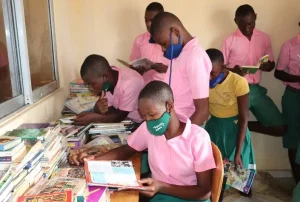
PHOTO: COURTESY
She could have been anyone, a friend, a neighbor, a colleague, your mama mboga, someone you shared a matatu ride with in the morning. Her name might not even make the news. But somewhere, her family is grieving, her dreams? gone, and her story has been reduced to another statistic in a growing crisis.
In 2024, Kenya reached a heartbreaking milestone. More women were killed last year than ever before. It’s not just the numbers that haunt us, it’s the cruelty behind them. Women are being murdered in their homes, on the streets, by the people they trust most. Husbands. Boyfriends. Relatives. Friends. It’s not random. It’s not faceless. It’s personal.
A report from African Uncensored and Odipo Dev paints a grisly picture. The methods are brutal and inhumane. Household items, the same tools used to prepare meals or build a home, are now weapons of destruction. And the violence is spreading like a whirlwind. Nairobi leads in femicide cases, but smaller towns like Kisii, Kitui, Meru, and Nyeri are catching up. There’s no safe corner left.
The danger is more acute for younger women. More than half of those murdered last year were 30 or younger. These were women just starting their lives, chasing careers, raising children, and, dreaming of better days. Now, their futures have been stolen, and their families are left to pick up the pieces.
Despite Kenya’s Constitution and laws promising protection, femicide remains undefined in our legal system. These murders are prosecuted as regular homicides, erasing the gendered nature of the crime. How can justice be served when the very essence of the violence is overlooked?
On the brighter side, there have been steps forward. Convictions have risen by 118% compared to the previous years. Average sentences have increased to 23 years. But what does that mean for the woman who might be killed tonight? whose killer might walk scot-free because the system is too slow or too flawed to hold him accountable.
President William Ruto’s allocation of Ksh. 100 million to fund a 16-day anti-femicide campaign in November 2024 was a step in the right direction. But campaigns alone cannot bring back the women we’ve lost or protect those still at risk.
What’s the Way Forward?
We can’t afford to keep losing women like this. Ending this crisis requires collective action from stakeholders across the board. The change we need isn’t complicated, it’s urgent and overdue.
- Name It for What It Is: Femicide must be recognized in Kenyan law. These crimes are not like other murders; they’re driven by gendered violence and need to be treated as such.
- Faster Justice: Four years is too long for a family to wait for a verdict. Our justice system must prioritize femicide cases, dedicating resources to ensure timely and thorough investigations.
- Protection of Survivors: Women who escape violence need safe shelters, mental health support, and financial aid to rebuild their lives. These services should be accessible to all, especially in rural and remote areas.
- Cultural Change: Violence against women isn’t just a crime; it’s a mindset. Communities need education and conversations that challenge harmful norms and foster respect for women’s lives.
- Commitment to Prevention: This crisis won’t end with punishment alone. Prevention starts at the roots, with investments in programs that empower women, educate boys, and provide economic opportunities to reduce dependency on toxic relationships.
- Media: The media holds immense power in shaping narratives and driving change. It must move beyond sensationalism and focus on storytelling that humanizes victims and educates the public. Stories should highlight the systemic issues behind femicide and amplify the voices of survivors, advocates, and those working to prevent violence.
This isn’t just a government issue, it’s about all of us. When we hear screams from next door, when we see signs of abuse in our workplaces, when we notice a friend withdrawing, what do we do? Do we look the other way? Or do we act?
These women were not nameless. They had stories and laughter to share, and their lives mattered. If we forget them, if we let the outrage fade, it’s not just them we’re failing, it’s every woman who will come after them.
Change doesn’t come from campaigns, high-end conferences, or speeches alone. It comes from the choices we make every day, in our homes, in our communities, and in our hearts.
They deserved better. Now, it’s up to us to make sure no one else becomes a number in this ongoing tragedy.


